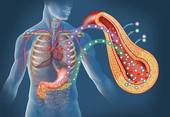Posted by The Certain Ones in Health, Healthy Living and Fitness | 1 Comment
Diabetes, Simply Said! In Part 2
Welcome back to Diabetes, Simply Said! In Part 2, we would briefly discuss the diagnosis and treatment of Diabetes. Untreated diabetes causes enormous amount of blood sugar levels to rise hence leading to numerous body systems complications. To mention a few;
- Eye damage that can cause blindness
- Kidney failure
- Heart attacks
- Nerve and blood vessel damage that can lead to the loss of toes or feet
- Problems with gums, including tooth loss
It is important to be conversant with the different methods of diagnosing diabetes especially in the light of a family history of Diabetes.

- Fasting blood sugar test. This test is performed in the morning, after an 8-hour fast. If your blood sugar level is 126 milligrams per deciliter (mg/dL) or higher on two occasions indicates diabetes. Test results from100 mg per dL to 125 mg per dL suggests prediabetes.
- Oral glucose tolerance test. This involves drinking a beverage containing 75 grams of glucose dissolved in water. A blood sugar level of 200 mg/dL or higher indicates diabetes after two hours of testing.
- Random blood sugar test. This test is significant for diabetes if the measured level of glucose in your blood at any time of day, regardless of meals is at 200 mg/dL or higher in the presence of symptoms of diabetes.
- A1c. The most recent method of diagnosis with a level between 6 and 6.5 percent is considered prediabetes. A level of 6.5 percent or higher indicates you have diabetes. This test is used to monitor diabetes.
I guess the question of the hour would be how can I stay healthy if I have diabetes or prevent myself from having diabetes in the first place? Daily, I tell patients with diabetes not to feel sorry for household members without diabetes due to their restricted eating habits. The point is that everyone has to be maintaining a healthier way of living which would roll over into how our glucose levels are monitored.
Although diabetes can’t be cured, you can still live a long and healthy life. The single most important thing you can do is control your blood sugar level. You can do this by eating right, exercising, maintaining a healthy weight and for some taking oral medicines with or without insulin.
Permit me to highlight a few salient points:

- Eat a healthy diet. The recommended diet for many people who have diabetes is very similar to that suggested for everyone: low in fat, low in cholesterol, low in salt and low in added sugar. Your diet should include lots of complex carbohydrates (such as whole-grain breads, cereals and pasta), fruits and vegetables. This type of diet will help you control your blood sugar level, as well as your blood pressure and cholesterol levels. It’s also important to watch your portion size so you can control your blood sugar and maintain a healthy weight. In order to help keep your blood sugar at a healthy level, it’s important to eat at least 3 meals per day and never skip meals.
- Exercise. Exercising will help your body use insulin and lower your blood sugar level. It also helps control your weight, gives you more energy and is good for your overall health. Exercise is also good for your heart, your cholesterol levels, your blood pressure and your weight–all factors that can affect your risk of heart attack and stroke. Exercise also seems to make people feel better about themselves and less anxious. This is because of more release of endorphins (good hormone) and less release of cortisol (bad hormone).
- Maintain a healthy weight. Losing excess weight and maintaining a healthy body weight will help you in 2 ways. First, it helps insulin work better in your body. Second, it will lower your blood pressure and decrease your risk for heart disease.
- Take your medicine. If your diabetes can’t be controlled with diet, exercise and weight control, your doctor may recommend medicine or insulin. Oral medicines (taken by mouth) can make your body produce more insulin or help your body use the insulin it makes more efficiently. Some people need to add insulin to their bodies with insulin injections, insulin pens or insulin pumps with could either be in the form of short or long acting insulin or both.
Be on the lookout for the final session on Diabetes; Simply Said! where I would discuss in details the complications and its management. In the meantime, let’s together fight the prevalence of diabetes in our communities and nation at large by staying educated about our bodies.
Thank you!
Dolapo Babalola can be contacted at:
dolapo.babalola.3@fa































It is hypoglycemia, but a comomn cause of this is undereating. If you miss a meal, etc., your body will keep producing a normal amount of insulin and your sugar will drop.I believe that people with true hypoglycemia (I had issues with this following the birth of my first child) are few. Many times people are not eating correctly, or have other regulatory issues within their bodies that affects the sugar as well. My problem was that my thyroid was very messed up after the baby was born. When everything settled down, I didn’t have problems with hypoglycemia anymore.